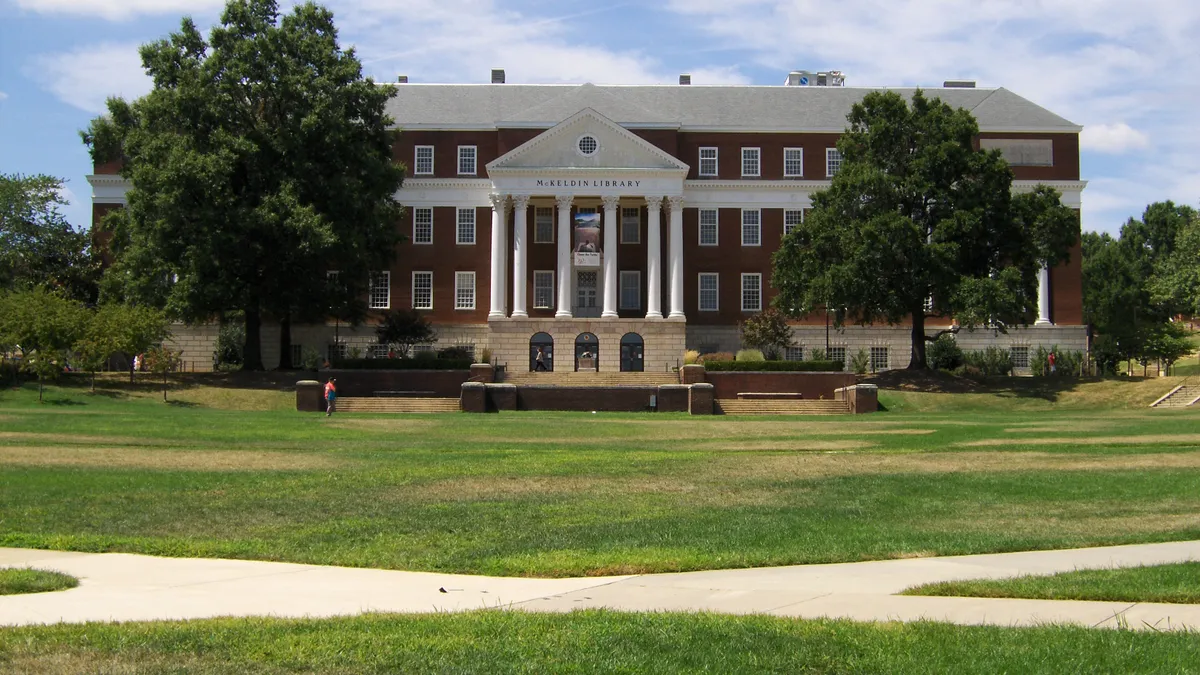Dive Brief:
- Campus police departments reported to the FBI nearly 280 hate crimes in 2017, up from about 250 in 2016, according to new data from the federal agency. Overall, hate crime totals in the U.S. were up 17% year-over-year.
- On college campuses, more than half (57%) of the reported hate crimes by campus police in 2017 were race-related, 26% pertained to religion and nearly 16% were about sexual orientation, according to the FBI data.
- Data collected by the Education Department show the total number of hate crimes reported across campus increased from 947 in 2009 to 1,300 in 2016. The number of students enrolled in degree-granting postsecondary institutions decreased slightly during that time.
Dive Insight:
The newly released FBI data marks the third-straight year the U.S. has seen an increase in reported hate crimes, and colleges haven't been immune from the trend. Instead, many have become a target for such incidents. One reason for the insight into the nature of the crimes is a 2008 amendment to the Clery Act requiring colleges to report them to the U.S. Education Department.
Just in the past week, thousands of protesters gathered at Drake University in Iowa to rally against white supremacist robocalls and racist notes slipped under dorm doors that warned two minority students to leave, the Des Moines Register reported. And at the University of Massachusetts Amherst, a dorm room door was defaced with anti-LGBTQ slurs and a swastika, according to the Boston Globe.
Tracking the number of such acts can be difficult because many hate crimes go unreported and not all hate-bias rises to the level of a crime. This, coupled with their increased prevalence on college campuses, has prompted higher education leaders to prioritize streamlining the reporting process so they can better respond.
The University of Maryland, for example, launched an online reporting form and created a hate-bias response team that works with impacted individuals and monitors patterns of hate and bias incidents on campus. The move was part of the university's response after a white U of Maryland student was charged with a hate crime and the murder of a black student who he allegedly fatally stabbed on the College Park campus.
U of Maryland is among at least 260 colleges and universities that have formed a bias response team or implemented a way to track such incidents, according to the Center for Public Integrity. These undertakings have not been free from blowback, however, as colleges struggle to toe the line between preventing hate speech while protecting the First Amendment rights of its campus community members.
In May, the group Speech First filed a lawsuit against the University of Michigan that alleged its campus speech and harassment codes were too broad and censored students. And nearby Central Michigan University dismantled its own bias response team after FIRE wrote it a letter that argued its policies were unconstitutional.
But colleges that do too little are at risk of alienating students impacted by hate-bias incidents. Unaddressed racism or other discriminatory acts at a college can lead to campuswide unrest such as the high-profile protests at the University of Missouri in 2015.
A recent report that used those demonstrations as a case study pinpointed several strategies colleges can take to ease campus tensions following a crisis. After racist incidents, researchers suggested, college leaders should listen to students' concerns without responding defensively, do away with prepared statements and instead speak "from the heart," and create a democratic decision-making process so key stakeholders have a say.











